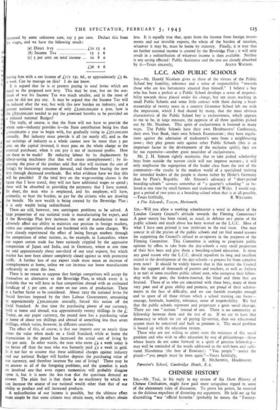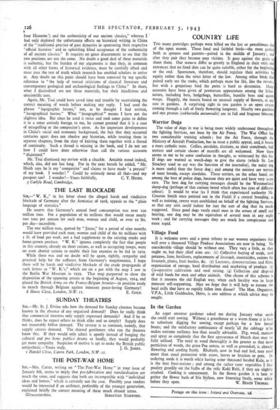CHINESE HISTORY Sta,—Mr. Tsui, in his reply to my review
of his Short History of Chinese Civilisation, might have paid more scrupulous regard to some of the elementary rules of discussion. To prove his points, he resorted to the dubious expedient of distorting my arguments. He held me up for discrediting "our `official histories' (probably he means the ` Twenty-
four Histories ') and the authenticity of our ancient classics," whereas I had only deplored the unfortunate effects on historical writing in China of the " traditional practice of past dynasties in sponsoring their respective 'official histories' and in upholding blind acceptance of the authenticity of all ancient classics." It requires no great discernment to see that the two positions are not the same. No doubt a good deal of these materials is authentic, but the burden of my arguments is that they, in common with all other forms of historical evidence, must be carefully sifted and must pass the test of truth which research has enabled scholars to arrive at. Any doubt on this point should have been removed by my specific reference to " the help of textual criticisms of classical literature and contemporary geological and archaeological findings in China." In short, what I discredited are not these materials, but their injudicious and unscientific uses.
Again, Mr. Tsui could have saved time and trouble by ascertaining the correct meaning of words before making any reply. I had used the phrase " logographic heroes," not, as he thought I had written, " locographical heroes." What " locographical " means I have not the slightest idea. But since he used it twice and took some pains to define it in a sense entirely foreign to me, he cannot pretend that it is a case of misspelling or the compositor's error. As for important developments in China's social and economic background, the fact that they occurred centuries apart does not absolve any historian, while treating them in separate chapters, from the duty of knitting them together with a thread of continuity. Such a thread is missing in the book, and I do not see how I could have done otherwise than call the various accounts " disjointed."
Mr. Tsui dismissed my review with a chuckle. Amiable mood indeed, which, alas, did not last long. For in the next breath he added, " Mr. Hsieh says he is my ' compatriot' and claims to have made 'a perusal' of my book. I wonder! " Could he seriously mean all that—and my
passport too? I wonder!—Yours faithfully, C. Y. HSIEH. 5 Carlyle Road, Cambridge.



























 Previous page
Previous page